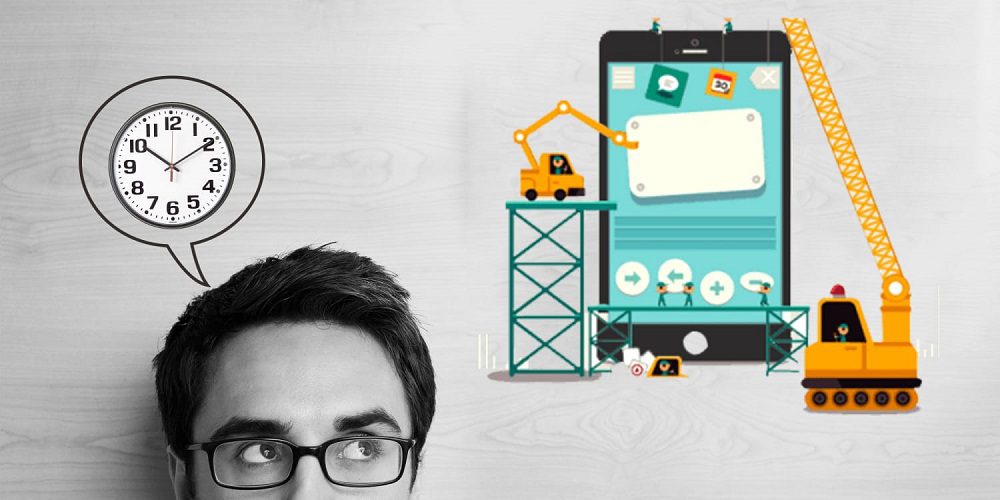Without any argument, the business is looking for similar attention with 3.96 billion active mobile application users worldwide. The mobile application development market constantly evolves by addressing customer needs and business operations. Indeed, mobile app requirements and profit in the business landscape are expected to reach $613 billion by 2025. So, by seeing this growth, it is imperative to evaluate every possible factor which influences the mobile app development process.
Generally, enterprises and small businesses inquire about the app development process and cost. But another essential factor to consider is the time, resources, and timeline to build an app. However, you are more likely to make a mobile app for your business after understanding its benefits. So, in this blog, we discuss how long it takes to build an app and the factors to keep in mind for building a mobile app.
Magic Table Shows Timeline for Different App Sizes
Based on research and analyzing the time, we have found that various stages of app development need different time and is based on the size of the app. Hence, we create a table that shows how time varies depending on the size of the application:
| Sr. No | Stage | Small App | Medium App | Large App |
| 1 | Requirement collection and Scoping | 2 to 3 weeks | 4 to 6 weeks | 6 to 8 weeks |
| 2 | UX/UI design | 3 to 4 Weeks | 6 to 8 weeks | 8 to 12 weeks |
| 3 | App development & testing | 5 to 6 weeks | 12 to 14 weeks | 20 to 26 weeks |
| 4 | Beta testing & launch | 1 week | 2 weeks | 3 to 4 weeks |
| 5 | Time to develop an app | 11 to 13 weeks | 24 to 30 weeks | 37 to 50 weeks |
Factors Impact the App Development Timeline
Along with getting a time estimation to develop a mobile app, it is also essential to consider various factors that impact the delivery period. Thus, we listed the elements you should consider during the app development timeline.
1. Complexity of App
It is one of the significant factors that impact development costs and timelines. A few things are involved in the app development process that influences its complexity and impact on time, like customized features, functionalities, and app screens. Thus, when you build a simple app with fewer complexities, then it will make it in a few weeks. But, when you add extra features and a complex app, it takes several weeks to complete.
2. App Development Requirements
The requirement decides the timeline of app development. However, the features and functionalities you want to add will increase or decrease the time to build an app. The functionalities include backend infrastructure, selecting CMS, or opting for their – party API integration. Here are some features entrepreneurs usually choose to enhance in their apps.
- Payment integration
- Sign up via social media or email
- User login and more
- Push notifications
- Portrait or landscape view
- Chat or messaging
- Maps Integration
- User login and more
Additionally, you should know that adding too many features to an app will increase the app’s development cost. Thus, you should know which features you want to include so it conveys the same to the mobile app development team to save time and cost.
3. UX/UI Design
To save app development time, you should apply easy UI design. Otherwise, complex structures will take longer time due to attractive design elements. In UX/UI designing process it includes planning, strategies, and testing, and if it’s a complicated design, it will increase development time. Additionally, it makes it difficult for users to navigate the app efficiently.
Practices to Accelerate Mobile App Development Process
After knowing the main factors impacting the development timeline, we will determine how to speed up the development process.
1. Use Agile Methodology
Agile methodology is a famous approach to speed up the development process by dividing the project into small parts and working on them simultaneously. This way, you can launch your mobile app quickly and get a response from the user.
2. Automated Testing
It is an excellent approach to speed up the development process by catching roots and bugs as early as possible. However, it will save much time in the long run as you don’t need to spend time fixing the issues later. Overall, it will help in improving the security of an application.
3. Use Readymade Components
Sometimes, you can use pre-built elements to speed up the development process. It is beneficial if you are creating a simple app without any complex features. Usage of readymade components can avoid starting from scratch and saves much time.
4. Hire an Experienced Development Company
After completing the requirement and if you want to complete the project quickly, hire an experienced app development company. However, a team of experts will know how to save time and avoid delays so that the project will complete in a shorter time.
Conclusion
This guide gives you an estimated time to build an app based on different app types, stages, and complexities. So, the average application time is 6 to 12 months. Now it is easy to create customized apps and launch them within your estimated time frame. If you are facing any complexity, contact Appzoro App Development Company to discuss your application requirements.
